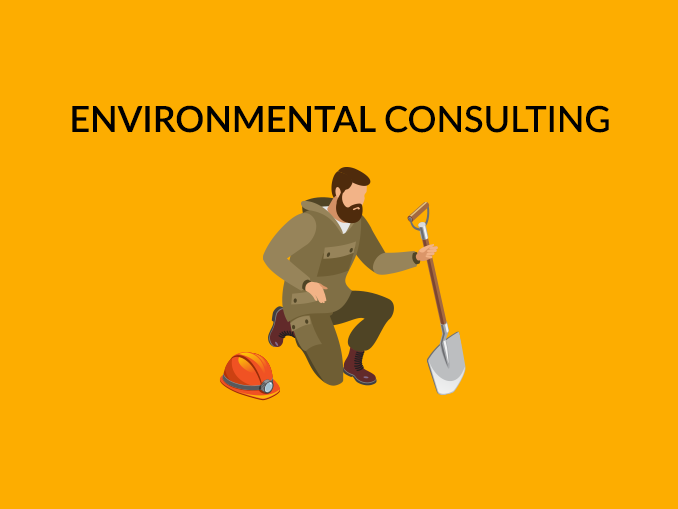
If you are looking for a career in environmental consulting in Hawaii, you've come to the right place. This career requires both engineering and environmental experience. PSC staff have extensive experience in Hawaii's most prestigious projects. They provide a broad range of services to private developers as well as state and federal agencies.
Average salary
The average annual salary for an Environmental Consultant is $66,796. This salary can vary depending on the location, years of experience and level of skills. Hawaii ranks 7th of 50 states in terms a Environmental Consultants salary. This is calculated by ERI using actual data on housing sales and effective income tax rates.
There are several types of environmental consulting jobs. Some consultants focus on planning and assessments, while others may opt to lobby for environmental laws and take the lead in remediation efforts. This job offers a steady salary and a rewarding career.

Locations
Hawaii's economic development is aided by environmental consultants. They help with the development, planning, and execution of complex projects. They also collaborate with regional and local natural resource teams. This is a great opportunity for career growth with increasing levels of accountability. They report to the Honolulu office director. They are involved in a variety of projects on the Hawaiian Islands.
There are many projects that Hawaii's environmental consultants can be involved in, including large-scale infrastructure and municipal development. Many of these projects involve the assessment of a site's environmental history. These professionals conduct site inspections, interviews with people knowledgeable about the site's history, and determine if it is potentially dangerous. They also search for files with public agencies, and they research historical aerial photos and USGS maps.
Education Required
Two types of education are required to become an environmental consultant in Hawaii. A Bachelor's degree provides a broad understanding of an area. The second type of degree is more technical and requires more training in scientific methods. The skills required for environmental consultants include excellent interpersonal skills, the ability to work in teams and independently. Strong analytical skills are also required for environmental consultants.
The salary of an environmental consultant will vary depending on the company. Although a bachelor's degree will generally suffice to land a job, employers may prefer candidates with a masters degree in environmental sciences. This type of degree is particularly valuable if you're interested in the development of a specialized area. To be eligible for an environmental consultant position, you will need to have at least five years experience. Consider working as an entry-level worker in a related field to gain the experience you require. This will give you invaluable experience in data collection and analysis.

Job outlook
The average salary for an Environmental Specialist in Hawaii is $29485. However, it can vary depending upon skill level and experience. The state ranks seventh in the United States for environmental consultants, but there are very few companies hiring in Hawaii, which means that job opportunities are limited. The cost of living is also a consideration when considering relocation.
According to the forecast, environmental specialists will see an increase in employment. Most of them are employed by state and local governments. These specialists work to identify and measure environmental problems and recommend solutions. These specialists work both in groups and independently. They are flexible and need excellent communication skills.
FAQ
What contracts are available for consultants?
Most consultants sign standard employment agreements when hired. These agreements outline how long the consultant will work for the client, what he/she will get paid, and other important details.
Contracts can also indicate the areas of expertise that the consultant will concentrate on and the compensation they will receive. One example is that the agreement may specify that the consultant provides training sessions and workshops, webinars, seminars, or other related services.
Sometimes the consultant will simply agree to complete a task within a certain timeframe.
Consultants often sign independent contractor contracts in addition to their standard employment agreements. These agreements allow the consultant work on his/her own but still receive compensation for his/her efforts.
What happens after the consultant has finished the job?
After the consultant completes the work, s/he will submit a final report detailing the results of their work. This report includes project timelines, deliverables, and any other pertinent information.
You will then review the report to determine if the consultant fulfilled your expectations. If the report does not meet your expectations, you have two options: to request changes or to terminate the contract.
Who hires consultants
Many organizations have consultants who help them with projects. This includes small businesses, large corporations and government agencies.
Some consultants work directly with these organizations while others freelance. The hiring process for both cases varies depending upon the project's size and complexity.
You will likely go through multiple rounds of interviews when hiring consultants before you choose the candidate you feel is the best fit for the job.
How do I become successful as a consultant?
It is important to identify an area of passion. First, build relationships. Understanding your clients' needs and operating style is essential. Finally, you have to deliver results for your clients.
While you don’t necessarily have to excel at every task, you should be better than all the rest. You need passion for what your do. It's not enough to just say "I want to be a consultant." You must believe in yourself.
How did modern consultancy come about?
The first consultants were actually accountants who would help companies manage their finances. Because they were skilled in managing financial information, they became "accounting consulting". This role quickly expanded to include human resource management.
The French word for "to advice" was the inspiration behind the term "consultant." This was used by businessmen as a way to describe someone who could provide guidance on running an organization. Many business owners use the term "consultant" to describe any professional advisor.
What does it cost to hire an expert?
Many factors go into determining how much it costs to hire a consultant. These include:
-
Project size
-
Time frame
-
Scope of employment
-
Fees
-
Deliverables
-
Other considerations such as experience level, location, etc.
Statistics
- "From there, I told them my rates were going up 25%, this is the new hourly rate, and every single one of them said 'done, fine.' (nerdwallet.com)
- My 10 years of experience and 6-step program have helped over 20 clients boost their sales by an average of 33% in 6 months. (consultingsuccess.com)
- According to statistics from the ONS, the UK has around 300,000 consultants, of which around 63,000 professionals work as management consultants. (consultancy.uk)
- According to IBISWorld, revenues in the consulting industry will exceed $261 billion in 2020. (nerdwallet.com)
- Over 50% of consultants get their first consulting client through a referral from their network. (consultingsuccess.com)
External Links
How To
What should I do to get started with a consulting business?
You can make a lot of money by setting up a consulting business. You don't have to have any business experience. You can start your own consulting firm by building a website. You can use social media platforms like Facebook, Twitter, LinkedIn and Instagram to promote your services.
With these tools, you can put together a marketing plan that includes things like:
-
Creating content (blogs)
-
Establishing connections (contacts)
-
Generating leads (lead generation forms).
-
Selling products via ecommerce websites
Once your marketing strategy is developed, you need to find clients willing and able to pay for your services. Some prefer to meet up at networking events or go to meetings, while others prefer to use online platforms like Craigslist, Kijiji, and others. The choice is up to you.
After you have found new clients, it's important to discuss terms and payment options. This could include flat fee contracts, hourly fees or retainer agreements. You need to be clear about what you expect of a client before they accept you as a client.
An hourly contract is the most popular type of contract for consulting services. This type of contract requires you to provide certain services at fixed rates each week or month. You may be eligible to negotiate a discount, depending on the service that you offer. It is important to understand the terms of any contract you sign before you sign it.
Next, create invoices. Send them to your clients. Invoicing is one those things that seem so simple until you actually do it. You have many options to invoice your clients. For example, some people prefer to have their invoices emailed directly to their clients, while others print hard copies and mail them. Whatever your preferred method, make sure it works well for you.
Once you have completed creating invoices you will want to collect payment. PayPal is preferred by most because it is easy-to-use and offers multiple payment options. You can also use Square Cash, Square Cash (Google Wallet), Square Cash, Square Cash, Apple Pay and Venmo as payment processors.
Once you're ready for collecting payments you'll need to set up bank account. Separate checking and savings accounts allow you to keep track of income and expenses separately. You can also set up automatic bank transfers to pay bills.
It may seem overwhelming to start a consultancy, but once it is done correctly, it becomes second-nature. For more information on starting a consultancy business, check out our blog post here.
You can make extra money by starting a consulting company without worrying about staff. Consultants can work remotely so they don't have the hassle of dealing with office politics and long working hours. Since you are not tied down by regular working hours, you have more flexibility than a traditional employee.